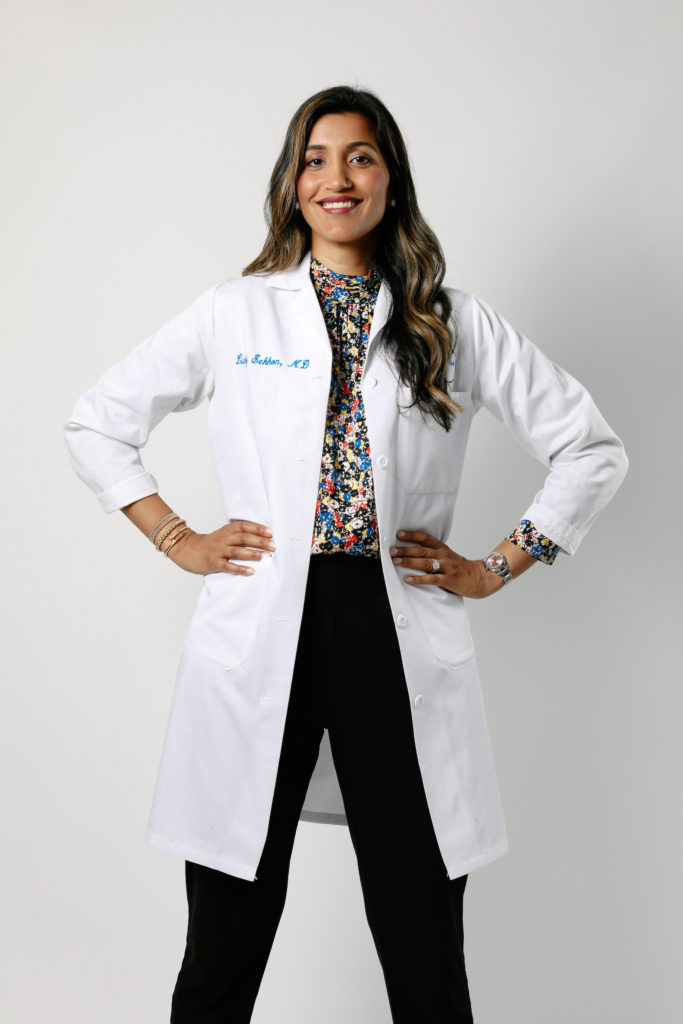The first time you visit a fertility clinic: A NYC fertility doctor’s guide on what to expect

When patients walk through my door, I can sense their emotional and mental state in an instant. Some may be excited and optimistic – these are the patients who made the appointment in the spirit of being proactive. They may be feeling energized and motivated to learn about their reproductive system, and perhaps wanting to explore fertility preservation options such as egg freezing. Patients who are struggling to conceive on their own, on the other hand, are often surrounded by an air of apprehension and defeat. They don’t want to have to take this step. Entering a fertility doctor’s office scares them – fear of the unknown, fear of what they may find out, fear of what they may need to do – and the emotional/financial/physical burden and expense that lies ahead of them on their future treatment path. And many of my patients lie somewhere in between, on that emotional spectrum. In general, most people aren’t going to feel fully at east when walking through my door.
It can be a lot.
Not knowing what to expect can make entering a fertility doctor’s office so anxiety provoking. This is why I put together this quick guide on what happens at the first consultation. Every doctor may have their own approach – this is mine. I typically spend an hour with a new patient, divided up as follows:
THE FIRST 5-10 MINUTES:
This is where I learn about who you are (high-level), why you are here, what you are hoping to get out of the consultation.
THE NEXT 10-15 MINUTES:
I will review your (+/- a partner’s) medical history. This involves a thorough review of your menstrual cycle history and gynecologic problems or symptoms. Many women who come to me may end up being diagnosed with a gynecologic issue for the first time ever- the most common examples are fibroids in the uterus (tell tale sign: heavy periods), endometriosis (tell tale sign: painful periods, pain with sex, etc), PCOS (tell tale sign: excess facial hair, acne, irregular periods, weight gain, etc.), to name a few. I have even diagnosed some less common issues for the first time, like detecting a uterine septum on ultrasound. Taking a thorough history also involves asking about family history – are there any hereditary medical issues? Are there cancers that have a pattern and affect multiple family members and/or tend to occur at a young age? If so, I will usually recommend patients see a cancer geneticist to explore whether testing for cancer predisposing gene mutations is recommended. I will also review whatever medications you are taking and your general lifestyle habits to ensure you are optimized for pregnancy, if trying to conceive.
THE NEXT 20-30 MINUTES:
Come prepared to be taught. You are going to get Reproductive Biology 101 – everything your health class failed to teach you aka: “Surprise! It’s not that easy to get pregnant and that’s okay!”. I go through the various components of what it takes for a healthy pregnancy to be established. We will talk through the various tests that should be done to look for barriers to getting pregnant. These include:
-Blood work: testing baseline hormone testing: estrogen, progesterone, luteinizing hormone (LH), follicle stimulating hormone (FSH), thyroid-stimulating hormone (TSH), prolactin (if irregular cycles), anti-mullerian hormone (AMH). We can also do blood work to assess what genetic mutations you and/or a partner carry to assess future reproductive risk.
-Ultrasound: to look at the uterus (I will take a 3D view in the hopes of ruling out structural issues such as polyp, fibroid, scar tissue etc. I will also focus on the ovaries and count the number of follicles I see at the surface (aka. the antral follicle count) and rule out problems such as cysts (ie. endometriomas, dermoid cysts etc).
-Semen analysis (for any individual/partner with testes): Don’t worry, we don’t put anyone on the spot – these are done by appointment only. A sample can be produced at home and dropped off within a short time-frame or can be produced on site for analysis of the sperm count, motility, shape (morphology), and overall volume of the semen specimen produced.
I will also spend this time discussing tentative treatment options and the pros vs. cons of each:
-Natural cycle tracking with timed intercourse or intrauterine insemination (IUI)
-Medicated cycles (ie. with clomid, letrozole, injectable gonadotropins) with timed intercourse or IUI
-IVF with or without genetic testing of the embryos (PGT)
-Embryo transfer (frozen or fresh)
-Donor egg IVF
-IVF with planned use of a gestational carrier (aka. what people think of when they say ‘surrogate’)
-Using a sperm donor to conceive or create embryos
-Reproductive surgery to optimize fertility
…and the list goes on…
THE LAST 5-10 MINUTES:
I wrap up the consultation with the physical exam and the ultrasound and then discuss the findings as we go along. I will summarize what we learned and the tentative plan for testing and potential treatment (and the recommendations I am leaning towards, contingent upon the results of the specific testing to be done). I will then answer any lingering, remaining questions that may not have been addressed during the course of the consult. I will introduce my patient to the rest of my team – the nurse, the egg freezing/IVF coordinator, the finance coordinator who can help them navigate insurance coverage and out of pocket costs, and the phlebotomist who will draw their lab work. Once this is done, the rest of the team meets with the patient and all of the information necessary to make a treatment plan decision is given to the patient or is pending the results of the labs drawn that day.
I always give patients my email address so that they can reach out to me after the consult, if any medical questions come to mind.
We cover a lot of ground in 1 hour – but it is efficient, thorough, informative, and empowering to gain so much knowledge about one’s fertility, reproductive biology, and options for treatment or ways to preserve their future fertility.
Hopefully now that you’ve read this guide, it is less nerve-wracking and you feel mentally equipped for your fertility check up!

